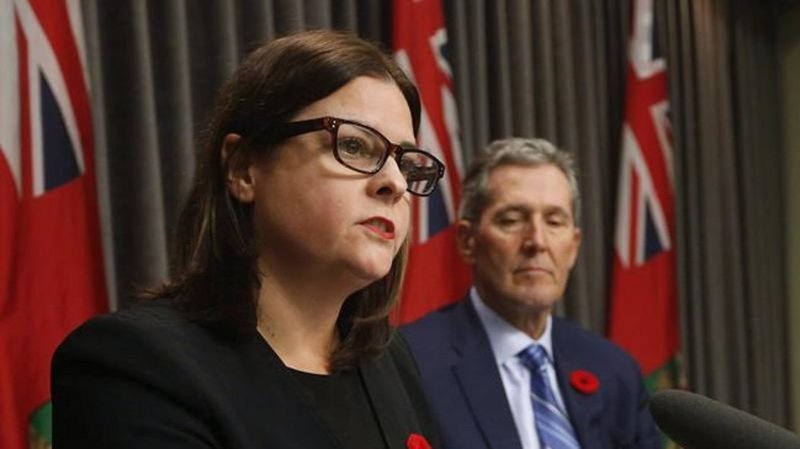
A profile of Manitoba Progressive Conservative leadership candidate Heather Stefanson
WINNIPEG — Heather Stefanson’s bid to lead the Manitoba Progressive Conservatives and take the premier’s chair follows a lifetime in and around politics that started as a young girl.
She is the establishment candidate in the contest to replace former premier Brian Pallister, who stepped down from the top job last month. She is backed by most of her caucus colleagues and has experience in key cabinet portfolios.
She is also in the position of having to distance herself from her own party’s decisions and explain why the COVID-19 pandemic hit Manitoba especially hard during her brief time as health minister.
“Have we always gotten it right? No,” she said in a recent interview.


